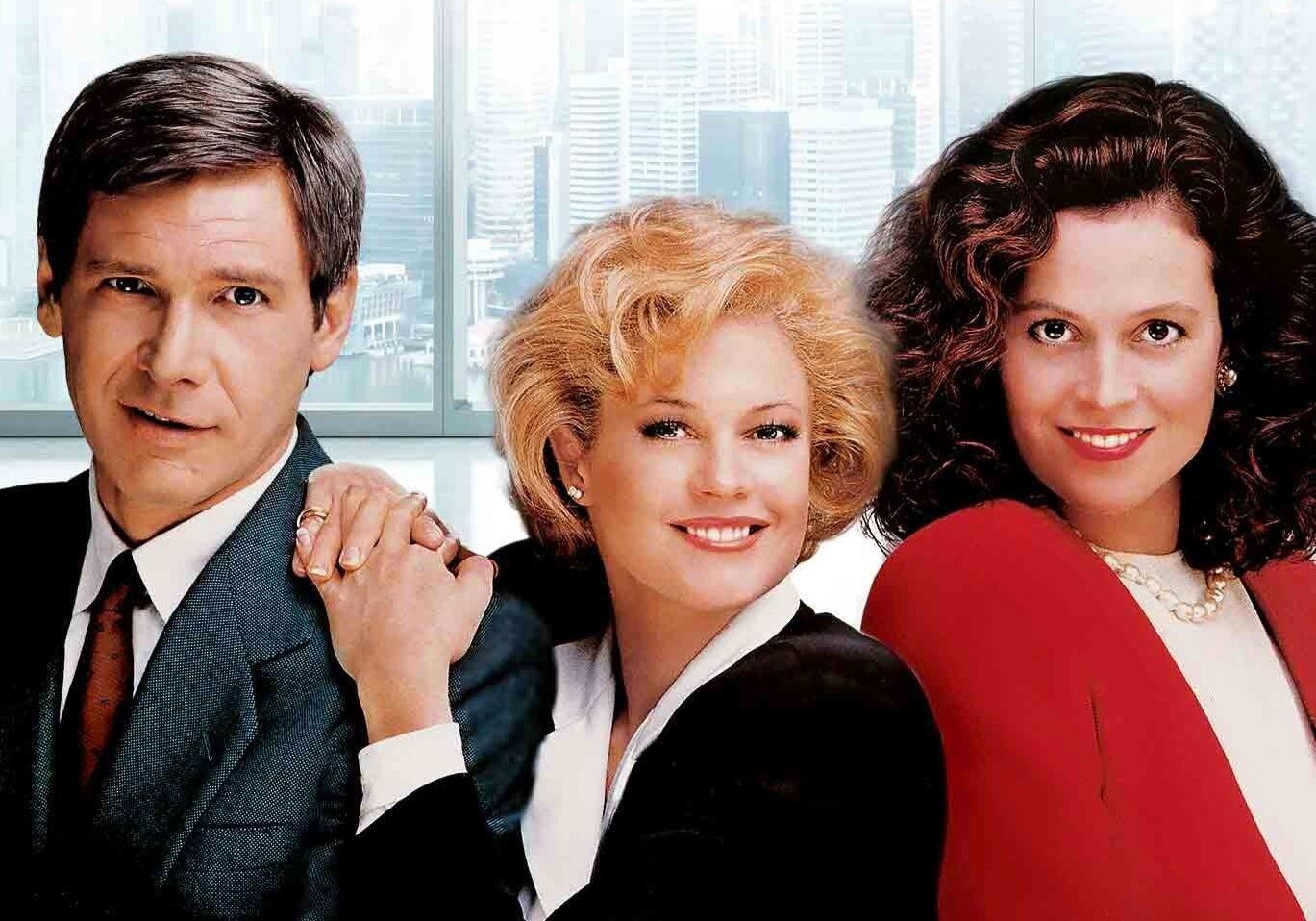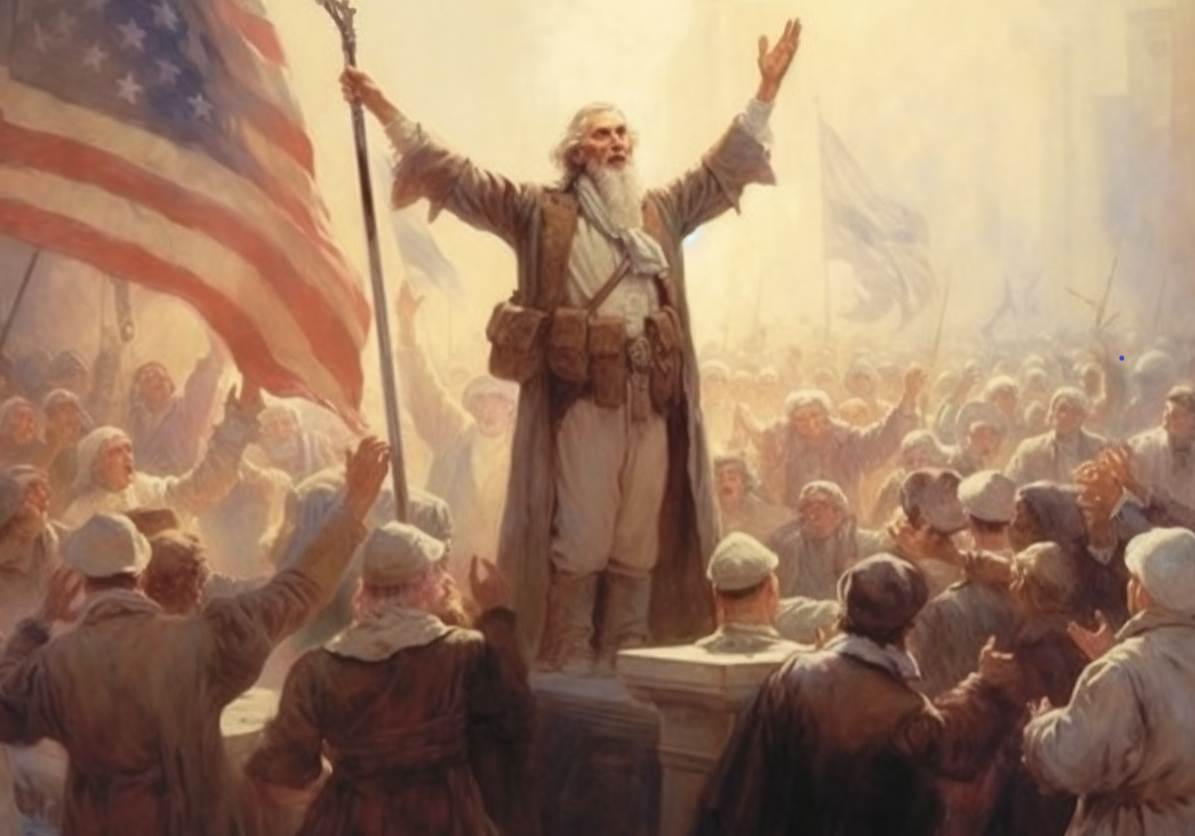We are all Tony Soprano today. We’ve tried to reason with Phil Leotardo. We’ve tried to compromise. We’ve tried to maintain the cooperative institutions of Our Thing. But the guy won’t take “yes” for an answer. He wants it ALL. So when one of his crew insults our daughter, we lose our mind. We overreact. We suffer Phil Leotardo Derangement Syndrome and we kick the lieutenant’s teeth in. Now we’ve got a choice. Do we settle with the guy we hate? Do we voluntarily pay the heavy price for breaking the “norms” of conflict with a guy who we suspect wouldn’t hesitate to break any norm at all? Little Carmine’s comic relief notwithstanding, we all believe that we are at the precipice of an enormous crossroad in American politics.
But what if it’s not a choice at all? What if the choice has already been made for us? What if we are immersed in a competitive equilibrium of a competitive game, where the only rational choice is to go to the mattresses? To do unto others as they would do unto you … but to do it first. What then?










So I read “Things Fall Apart” and my first impression, as usual with Epsilon Theory work, was that this is an extremely insightful and useful analysis of the political landscape. The claim that “This is the breaking of mediative and cooperation-possible political institutions and practices, and their replacement by non-mediative and cooperation-impossible political institutions and practices,” captures for me both the nature and severity of the situation.
Something kept nagging at me, however, and it was picked up in a research piece entitled, “Hidden Tribes: A study of America’s Polarized Landscape”, to which both Gillian Tett at the Financial Times and David Brooks at the New York Times have referred recently. The study, based upon extensive survey data, reports, “despite America’s profound polarization, the middle is far larger than conventional wisdom suggests.”
Indeed, it finds that 67 percent of Americans comprise what they call “Exhausted Majority”. People in this group are less tribal than the extremes and share the attributes of “being ideologically more flexible,” “supporting political compromise,” “being fatigued by US politics,” and “feeling forgotten in political debate.” This analysis also resonates with me partly because it more accurately reflects my own views and partly because it more accurately represents the views of most people I know.
Given this apparent contradiction, I’ve been trying to reconcile the perspective of a “widening gyre” with that of an “exhausted majority.” It seems to me that the widening gyre refers more the political landscape and the exhausted majority refers more to the social landscape. This would explain why so many people do not feel well represented by politicians. It also suggests that much of the political system is broken insofar as it does not reflect representative democracy. This would also suggest that in order for things to improve, political systems will need to get fixed, we’ll need to rely on more social and apolitical institutions to solve problems, or both.
I would love to hear other thoughts!
Dave
Hi, Dave, I think the idea of an “Exhausted Majority” in the middle is accurate, but unfortunately immaterial in a two-party political system with a first-past-the-post election mechanic. I mentioned this in Things Fall Apart (Part 1), but if we had a proportional representation system, then a third party drawing from that Exhausted Majority would quickly become the swing partner in any coalition government, and would wield outsized political power. As it stands, though, a third party is a practical impossibility, and so the Exhausted Majority has no effective structural outlet.
Ben, thanks for the reply. I understand what you are saying in terms of the existing political landscape. I am more curious about exploring/imagining a different landscape. After all, if you don’t like the game, change the rules, right? This seems to be the message from Paul Volcker which I came across in Martin Wolf’s review of his book in the FT this morning: “We face a huge challenge in this country to restore a sense of public purpose and of trust in government. It will require critically needed reforms in our political processes …”
To that point, David Brooks provided a specific suggestion in his May 31, 2018 NYT article, “One reform to save America”. He recommends shifting to ranked-choice voting which seems like it could alleviate much of the polarization in politics by making it “much easier for third and fourth parties to form.”
So a more specific question would be: Are you arguing that most people have become such “sheep” that even sensible political reforms are practical impossibilities? Thanks.
I am hopeful and optimistic that structural political reforms can be made at a local level, and that over a long game this sort of grassroots movement can make a difference at a much more macro level. I don’t want these reforms at a national or macro level from the outset, however, because I believe that the crisis and pain necessary to generate a Constitutional convention where those reforms could be implemented by anything other than the barrel of a gun would be too immense to bear.
Hey Dave,
I did a little bit of reading into that report as well. It’s a pretty interesting take of the current state of affairs. The thing that piqued my interest the most in this report was the table of the 7 classifications and the corresponding household incomes shown on page 145 of the report. In it, those on two extremes (Progressive Activists & Devoted Conservatives) are much more likely to have incomes that are greater than 100K than the means (25% of PAs & 21 % of DC vs 13% for the general population), while those in the “exhausted” to be towards the lower ends of the income distribution. My initial thoughts on this are that some of the questions in the survey that measure political activism, such as donating to a political fund or attending a rally are more likely measuring the amount of leisure time or excess cash that an individual has rather than judging the intensity of their political beliefs. If this is the case, the study may be void, as it is not properly judging the political engagement of each respective group. Any thoughts on this?
Thanks,
Eric Steen
Alright, thanks Ben, that’s helpful. Also, for what it’s worth, I appreciate your wake up call as to just how intractable some of these problems are.
Eric,
The short answer is that I don’t know because I haven’t seen the questions. It may be possible to track them down in you’re interested.
While I can certainly be skeptical of survey results, I am less so of this one because it is so much more involved than typical surveys. Read through the context and methodology section and you can see that this entails a unique (at least to my mind) bridging of survey results and academic research and the survey results are also complemented by interviews and focus groups. None that makes the results bullet-proof, but quite a ways off from a run-of-the-mill poor survey design.
Dave
Hello Ben. As someone reading this for the first time in 2020, I am fascinated with your thoughts on how all of this relates to the world today. Do you think perhaps our global pandemic has taken the place of “the big war”, and will have a unifying effect? I am doubtful, and I wouldn’t say that this bimodal distribution has done anything except trend further towards the edges. However, we did just elect one of the two specific candidates that you named as “un-electable.” Do you think that is indicative of a “radicalization” of Biden towards the left edge? Or is Donald Trump an anomaly that only temporarily unifies the distribution? Thanks for all you do at ET.
I was really hopeful that Covid would, in fact, be that unifying force to bring us all together, that it would spark “Our Finest Hour”. Boy, was I wrong!
As for Biden, I think that all of the other Dem candidates coordinated their exits to stop Bernie on Super Tuesday. Otherwise, we’d be talking about President-elect Sanders or a re-elected President Trump.
Ben, ever since I first read this over 2 and a half years ago, I’ve assumed China is the “Other” we’ll have a big war with. This seems even more likely today, with all the recent posturing by both China and the US, Taiwan being Arrakis, etc.
Is that actually what you had in mind when you say “a big war with an Other,” and do you think it’s now imminent?